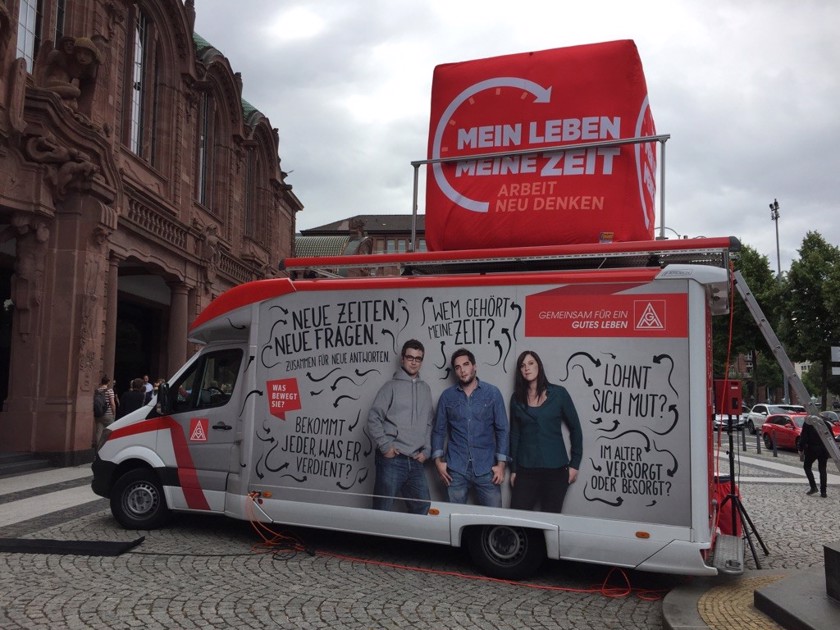There are a multitude of factors shaping today’s working patterns in the German metal industry; from the general intensification of work and an increasing pressure for more flexible working time arrangements, to digitalisation and the emergence of more mobile work, globalisation, and a growing pressure to work around the clock. Congress participants agreed in both their testimonies and their demands: they want more say in their working time. Put simply: they want working arrangements that fit their lives.
This means greater self-determination in working time arrangements, having the possibility to reduce working time for full-time workers and create a better work life balance. It should involve easing the pressure on shift workers, especially for those who perform arduous work and ensuring that mobile work is possible only on a voluntary basis and that down-time is safeguarded. Apprentices, too, should receive extra days off than they have at present. A countrywide realignment of working time should ensure that the hours worked in both Eastern and Western Germany do not exceed 35 hours a week.
All of these demands come directly from delegates representing the voices of fellow workers throughout the industry. The congress in Mannheim was a milestone within the campaign launched by IG Metall a year ago with the goal of improving working time regulations for workers. It is now up to the IG Metall Collective Bargaining Committees to gather all of these demands and take them to the next level.
German metalworkers are not alone in their demands for better work arrangements. In fact, they echo debates currently taking place in many trade unions across Europe who, faced with the challenge of the evolving working world, strive to shape working time for the years ahead. Working time remains a core issue for trade unions. It not only determines good work, but also good lives. It also defines how we can better share work.
The debate on working time is at the top of industriAll European Trade Union’s agenda.
